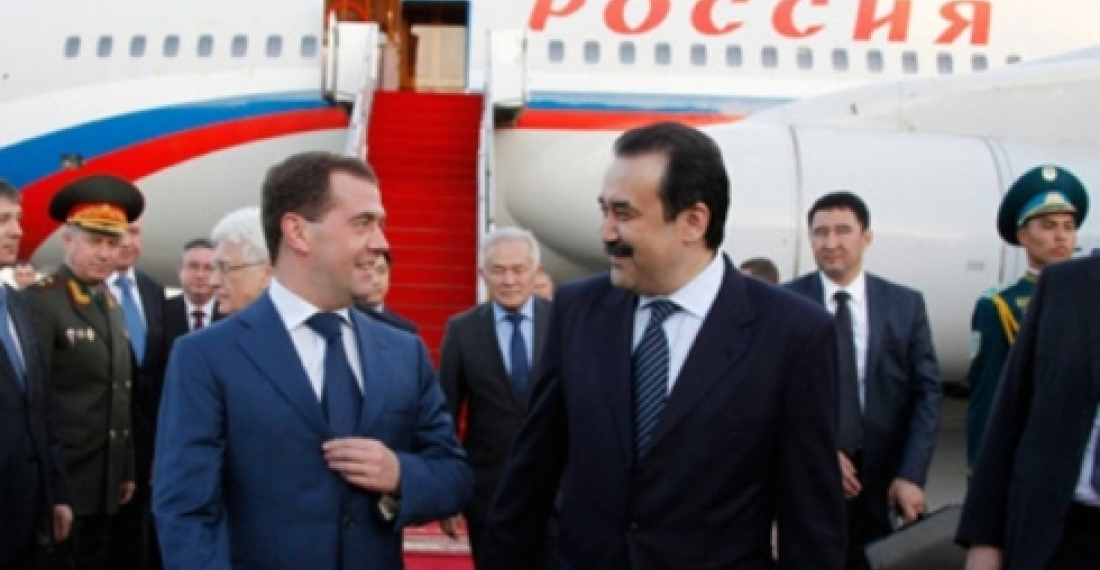Russia’s Prime Minister Dmitry Medvedev is in Astana for meetings with the leaders of Kazakhstan.
The official part of the visit will begin with the talks with President Nursultan Nazarbayev, after which he will meet with his Kazakhstani counterpart, Karim Massimov.
Whilte the two countries have good bilateral relations there are also some outstanding issues that are causing friction. On the agenda during Medvedev's visit is related to the Baikonur Space Centre. Russia and Kazakhstan have failed so far to reach an agreement on a new drop zone for the debris of Russian carrier rockets being launched from Baikonur Kazakh space agency Kazcosmos said.
Russian Kommersant daily said in an article last week that Russia would not be able to carry out three scheduled rocket launches because of the dispute over the drop zone. “The launches mentioned in the article have not been agreed to by Kazakhstan because they require a new debris drop zone, which is not part of the Baikonur rent agreement of December 1994,” Kazcosmos said in a statement on Monday.
Kazakhstan insists that in order for the zone to be used the two sides must sign an additional agreement to the Baikonur rent agreement, which has to be ratified by the Kazakh parliament.
Kazcosmos said that the talks on the new agreement began in 2008, but a draft document is still in the works. Failure to sign the document already prevented Russia from launching a European weather monitoring satellite MetOp-B on May 23, and will most likely jeopardize a cluster launch of Belarusian, Canadian, German and two Russian satellites on June 7 and the launch of Russian satellite Resurs-P in August.
source: commonspace.eu with RIA Novosoti
photo: medvedev arriving in Kazakhstan (picture courtesy of Itar-Tass)







